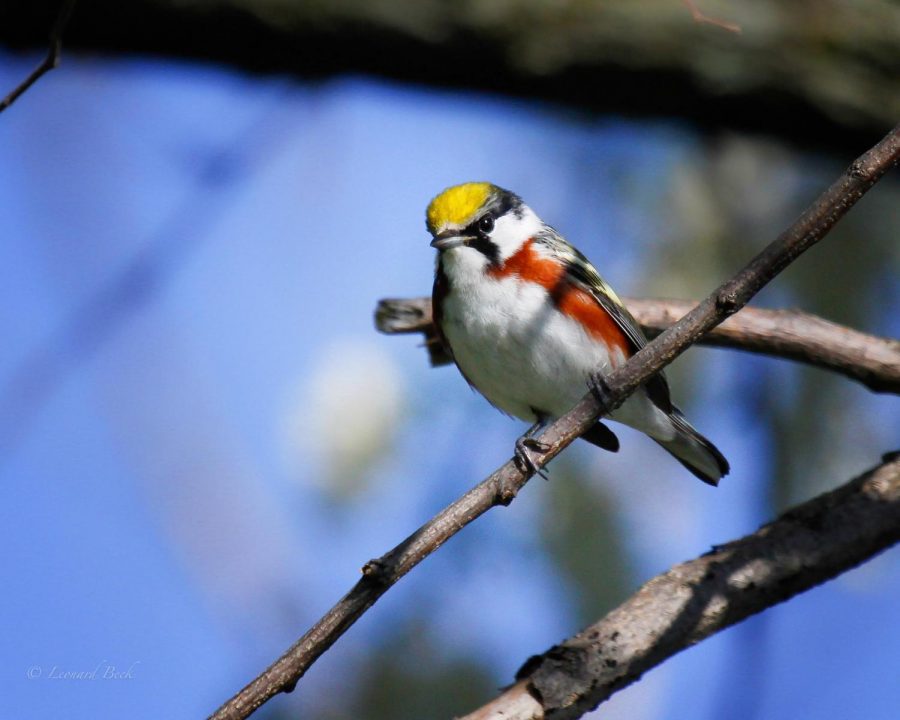Not Just for the Birds
Science teacher and students have gained real world experiences while documenting 100 different bird species on campus
January 15, 2021
In a little section of Boone County High School, there lies a little garden called the “outdoor classroom.” Recently, science teacher Lenny Beck and his students accomplished a feat of documenting the 100th different bird species found at Boone.
Beck explained that the inspiration for the outdoor classroom came from trying to find an effective way to teach his students with real world experiences, and the outdoor classroom has benefitted both the birds and his students. He said that these types of learning experiences end up being the most “meaningful” and “engaging” ones.
Beck teaches classes such as environmental science and zoology; both of which can be difficult to apply real world experiences to in a traditional classroom. As a solution to this problem, he decided to create a place his students could learn outdoors where they would be able to get those experiences.
Even though Boone County is a suburban area with little open nature, Beck provided a detailed, scientific explanation for why so many birds would want to stop at Boone. Basically, many large mixed flocks of birds migrate during spring and fall to places that will have more food during the winter.
When the birds take breaks during their long journey, if the area they stop in has a very little suitable habitat like Florence, they will typically prefer to congregate in a smaller habitat with mostly native vegetation. The reason the birds want native vegetation is because it attracts more native insects, which means that the birds get an insect buffet to fuel up on before heading off again.
Therefore, the secret to getting so many birds to stop by the outdoor classroom was having the students remove non-native species from it and replace them with native species, something Beck said his classes have been doing for years. Doing so has “led to a lot of insect activity and hiding places for birds” Beck said.
Beck and the students try to plant as many native plants as possible, which has helped increase the diversity of the plant and animal life, including the varied birds.
Beck also tries to apply the class’ findings about the different birds into his traditional classes like zoology and environmental science.
“My students and I will go outside to survey birds on campus to see what is there, to learn behavior, and to learn identification,” Beck said. “We also monitor biodiversity on campus in environmental science.”
Beck and his students don’t stop there.
“Finally, we study the outdoor classroom ecosystems in environmental science. Bird species are often critical to understanding the overall function of the ecosystem.”
Beck said that he believes that the outdoor classroom and documenting the different bird species has helped his students in more ways than one. He said it allows them to investigate the real world, see science on a smaller scale, and discover and learn more about local plants and animals.
He also said that he’s had multiple former students he’s talked to who still remember the experiences they had and learned from having the outdoor classroom, and some even go on to participate in citizen science efforts like bird counts.
“People often take birds for granted, but they are extremely important to the overall health and functioning of our planet,” Beck said.
He explained that there is a net population loss of 3 billion birds in North America in the last 50 years, and it still keeps declining.
“Loss of habitat, pollution, invasive species like domesticated cats, and window strikes are some of the main reasons for their decline,” Beck said. “Little things like conserving small pieces of habitat, like our outdoor classrooms, can make a difference.”
For information on the rapid decline of birds, Beck provided a link from AllAboutBirds.org.
